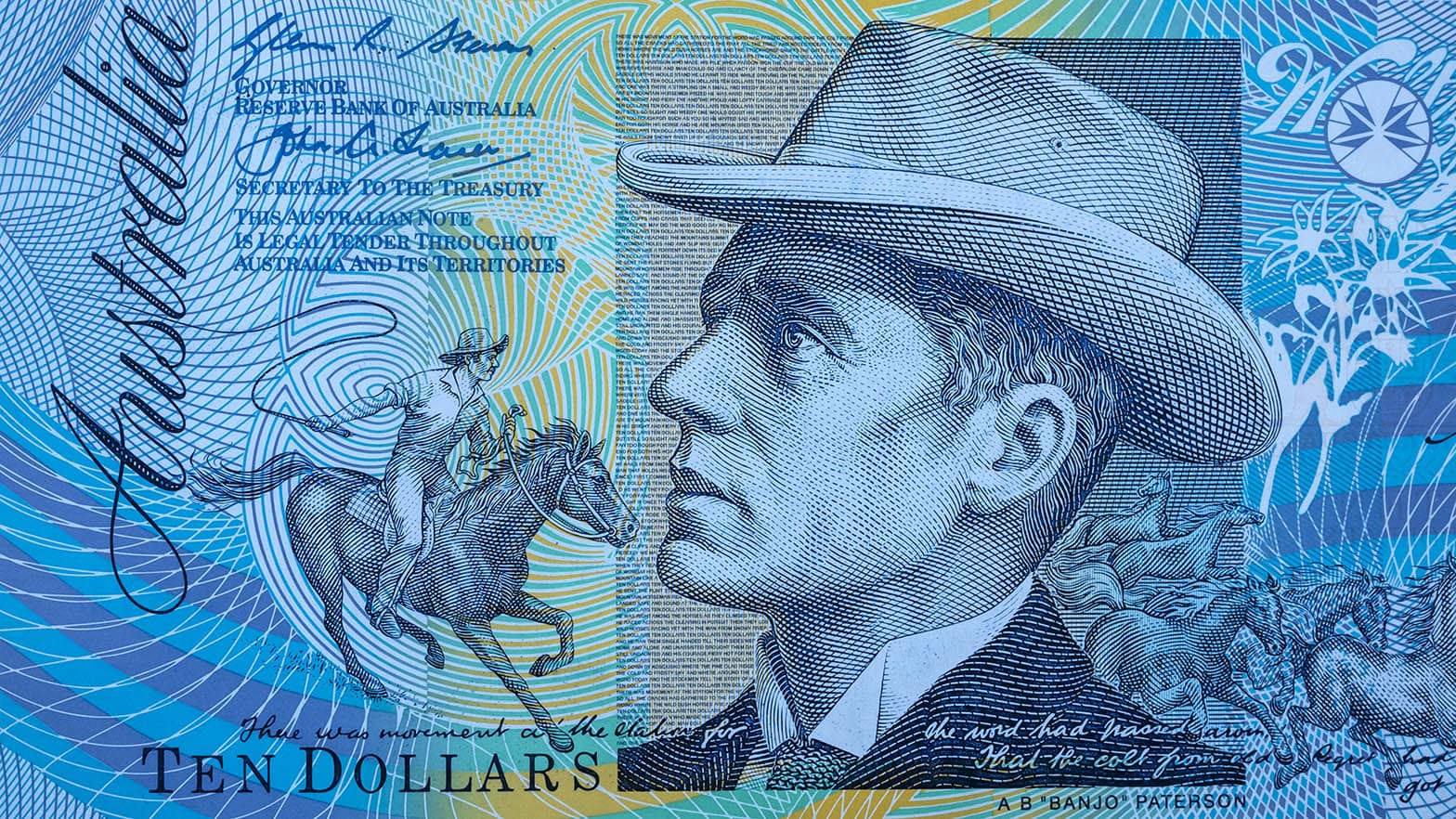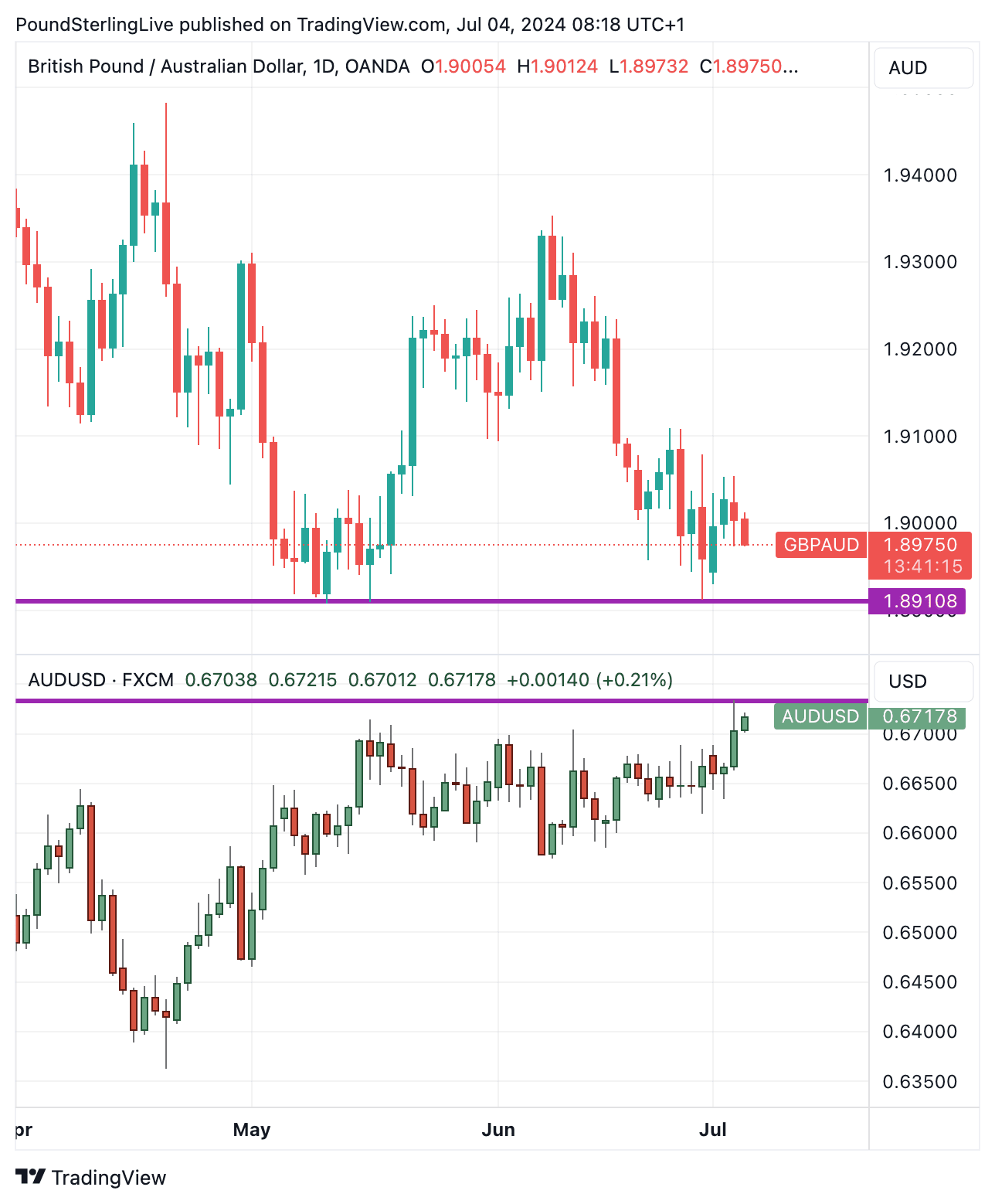
Image © Adobe Images
The Australian Dollar scaled January highs as it proves to be one of the main beneficiaries of the relief rally underway in global markets, which can continue into the weekend.
The Australian Dollar broke new ground after the U.S. economy printed a set of weak data that raised the odds that the Federal Reserve would cut interest rates in September.
"In FX, the big drop in the ISM Non-Manufacturing Index in June, together with other weak US data releases, triggered a heavy and broad-based sell-off to the detriment of the USD. This helped the other majors," says Roberto Mialich, FX Strategist at UniCredit.
The Aussie Dollar is considered to be one of the most sensitive G10 currencies to global risk sentiment, meaning that when global markets rally, the Aussie dollar does, too.
"AUD/USD broke above resistance at 0.6700, which held for most of the past seven weeks after yesterday’s weaker-than-expected U.S. services ISM. We expect AUD/USD to keep edging higher to above 0.7000 into next year," says Carol Kong, FX strategist at Commonwealth Bank.
The Pound to Australian Dollar (GBP/AUD) is also lower on the day, but Sterling is resisting the Aussie's advance better than some heading into Thursday's General Election.
The U.S. ISM services PMI read at 48.8% in June, a level that signals a contraction in activity, down from 53.8% in May. The undershoot relative to expectations was significant as the consensus was prepared for a reading of 52.5%. Services businesses form by far the largest sector in the U.S. economy.
The slowdown in the U.S. economy is becoming more pronounced, and this is raising the odds of an interest rate cut at the Fed in September and potentially once more before year-end.
When the Fed lowers rates, the cost of borrowing falls. Given the sheer quantity of global loans made in USD, the impact is felt worldwide. This creates a positive growth impulse, which aids currencies that are exposed to global demand.
GBP/AUD and AUD/USD (bottom) at daily intervals. Track AUD with your own alerts, find out more here.
This grouping of currencies includes the Australian Dollar, which counts on Australia's significant raw materials export base.
But the domestic economy is also helping. It remains too strong for the Reserve Bank of Australia (RBA) to entertain an interest rate cut in 2024, which means AUD is benefiting from expectations that domestic interest rates will remain higher for longer than elsewhere in the world.
Domestic economic resilience was confirmed by the midweek release of above-consensus retail sales and last week's inflation print.
"In the FX space, the AUD/USD, which has held its own quite well of late thanks to strong Aussie inflation and a hawkish RBA, led the major pairs higher, rising to its highest since January," says Fawad Razaqzada, an analyst at City Index.
The next major event for AUD will be Friday's U.S. non-farm payroll release. A strong reading here will see recent gains unwind as expectations for that September rate cut at the Fed are tempered.
An undershoot would see the rally extend further.
"We expect AUD/USD to keep edging higher to above 0.7000 into next year," says CBA's Kong.

